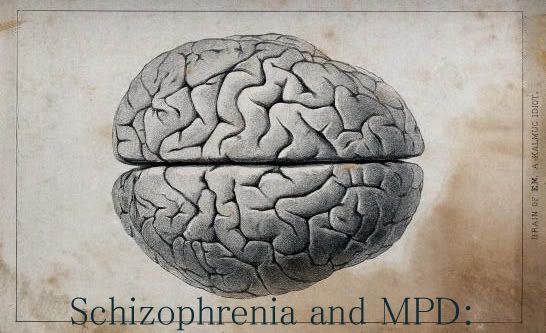In this myth, the one key misunderstanding is that schizophrenics do not have split personalities. Instead, “they possess a single personality that’s been splintered or shattered (Lilienfeld, 191).” Most often, people don’t fully know the definition for what schizophrenia is or isn’t since the symptoms for the disorder are somewhat crossed with those of MPD. “When a person has schizophrenia, he experiences hallucinations and delusions, seeing things that aren’t there and believing things that are clearly not true (Madison, 1).” Schizophrenics tend to be extremely socially withdrawn as well; usually hearing voices they become very fearful. In multiple personality disorder, a person has on average ten different personalities. Depression and self-mutilation in this disorder is also very common. Perhaps one of the most misleading subjects in this myth is how the DSM-III prior to the DSM-IV had similar diagnoses of the two conditions. In fact, until 1980 Multiple Personality Disorder was considered rare because so many patients were misdiagnosed with schizophrenia (Ross, 39). In a recent finding, clinicians have documented that just fewer than 50% of MPD patient had a prior diagnosis of schizophrenia. This misunderstanding of psychological terminology is obviously not uncommon. It’s therefore important to understand the differences between a split personality and multiple personalities.
References:
Lilienfeld, Scott O. 50 Great Myths of Popular Psychology: Shattering Widespread Misconceptions about Human Behavior. Chichester, West Sussex: Wiley-Blackwell, 2010. Print.
Madison, N. "What Is the Difference Between Schizophrenia and Multiple Personality Disorder?" WiseGEEK: Clear Answers for Common Questions. 24 Apr. 2010. Web. 11 May 2010.
Ross, Colin A. "Multiple Personality Disorder Patients with a Prior Diagnosis of Schizophrenia." Dissociation 1.2 (1988): 39-42. UO Libraries. University of Oregon. Web. 16 May 2010.


This definitely reminds me of a reasoning error! Considering that the most accurate diagnoses of MPD versus Schizophrenia did not exist until 1980, there was absolutely no way the general public until that point could have access to all of the information... hence... Problem of Hidden or Absent Data".
ReplyDeletePeople don't generally seek out information concerning mental illness. They rely on the media, on multiple different mediums, to inform them as necessary to coalesce with society. However, the media can get no better sources than what it likely pays for.... hence the necessary studies to differentiate these two illnesses could not occur until something triggered an emphasis on the distinction.
That makes me wonder... perhaps something about the 70s or 80s created a need for these studies?